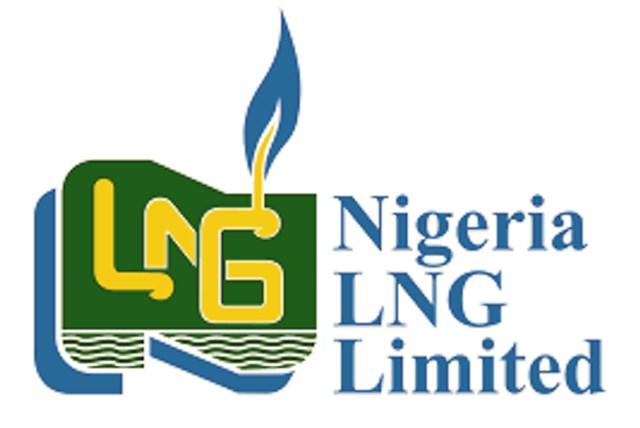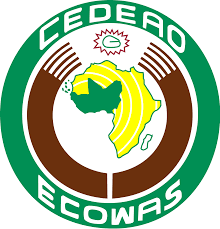News
Train-7: Reps Give NLNG 72Hrs To Produce Waste Disposal Plan

The House of Representatives, yesterday, issued a 72-hour ultimatum to the Nigerian Liquefied Natural Gas (NLNG) to submit documents on waste management/disposal component of the final investment decision in the NLNG Train-7 Gas Project.
The House handed own the directive through its “Ad-hoc Committee on the Investigation of the Non-Inclusion of Waste Management/Disposal of Sludge in the NLNG Train-7 Gas Project and Other Infringement by Oil Companies/Multinationals”.
The Chairman of the committee, Hon. Agom Jarigbe Agom, at an investigative hearing with NLNG officials, said that the company had failed to submit its financial investment documents.
He told newsmen at the end of the hearing that the mandate of the committee was to investigate the environmental challenges and non-inclusion of the waste management disposal in the NLNG gas project.
Agom said: “We are investigating the non-inclusion of waste mgt on the NLNG Train 7 gas project. We had earlier on asked them for the financial investment documents. Our concerns are environmental hazards and non-inclusion of waste management disposal in the NLNG gas project.
“That’s why we invited them and we‘ve given them an ultimatum of 72 hours to provide the final investment documents; the component of it that has to do with waste management in the Train 7 gas project.
“The meeting was quite interactive and very revealing. I think we are making progress.”
The lawmaker said that though the local content component was not really their concern as a parliament, they would ensure it would be implemented.
He added that the committee would continue its hearing today with some invited international oil companies, IOCs who would make to explanations to the committee.
“Local content component is not really our mandate but as a parliament, we will ensure that Local Content Act is complied with. On IOCs, basically, the issue of sludge disposal is mainly with the IOCs. They generate a lot of sludge from their operations.”
In responding, the General Manager, External Relations and Sustainable Development, NLNG who led the delegation of staff said the company would make available the documents.
“It was a very interactive session. They requested some document and will provide them”, she said.
News
Port modernisation remains a priority – FG
The Minister of Marine and Blue Economy, Mr Adegboyega Oyetola, says the modernisation of seaports remains a top priority for the Federal Government.
Oyetola said this in Lagos, yesterday, at an interactive session with the Nigerian Guild of Editors (NGE).
The minister recalled that the Federal Executive Council last week approved the award of contract for the modernisation of the Western Ports (Lagos Port Complex, Apapa & Tin-Can Island Ports Complex) with a completion period of 48 months.
According to him, the procurement process for the modernisation of the Eastern Ports is being fast-tracked.
“The goal is to ensure that our port system collectively becomes the transhipment hub for the sub-region. When the modernisation is completed, the draft of our port will be 16 metres to 17 metres.
“It (draft) is currently 12 metres to 13 metres. This will allow bigger vessels to berth and reverse the revenue loss to neighbouring ports of Tema, Lome and Cotonou.
“These port rehabilitation projects by NPA are expected to generate over 20,000 jobs,’’ the minister said.
He, however, said that to bridge the infrastructure gap, the ministry is promoting Public-Private Partnership (PPP) to attract private sector investment in port modernisation and channel dredging.
Oyetola said that such investment could also include areas like automation, inland waterways development, ferry/cruise services, cargo handling equipment deployment, terminal operations, and technological innovation.
He said; “Additionally, we are extending necessary support to private investors to encourage participation in greenfield port projects such as Badagry, Ilaje, Olokola, Agge, Ibaka, Burutu, Snake Island, Bakassi, Deep Sea Ports as well as the development of river ports and jetties across the country.’’
The minister said that ?Inland Dry Ports were also being developed across the country to enhance trade facilitation.
He explained that these ports served as cargo handling and clearance hubs, improving logistics efficiency and easing access to international markets.
Oyetola noted that in furtherance of Nigeria’s improved international posture in world maritime governance, the country had proposed a bid to contest election into the International Maritime Organisation (IMO) Council.
According to him, Nigeria will be contesting in Category C during the 34th IMO Assembly, scheduled to hold in London between November and December.
He said that President Bola Tinubu had approved it and the IMO had been duly notified, while the ministry had begun the preparatory processes.
“?The ministry, in concert with its agencies, has also constituted a National Fleet Implementation Committee to establish a private-sector-led national flag carrier.
“This initiative aims to create employment, reposition the maritime sector and generate revenue for the government,’’ Oyetola said.
?The minister stated that in concert with Nigerian Maritime Administration and Safety Agency (NIMASA), the ministry had engaged stakeholders to finalise arrangements for the disbursement of the Cabotage Vessel Financing Fund (CVFF).
“NIMASA is working on this and has almost completed the process,’’ he said.
The minister noted that the ministry and its agencies worked as a team to deliver on the lofty mandates given and had recorded significant achievements.
“The vision is for the ministry to ensure that the country’s marine resources are harnessed sustainably to position Nigeria as a premier maritime nation. .
?“In partnership with African Union Inter-African Bureau for Animal Resources (AU-IBAR) and the Kingdom of Norway, we have concluded the development of Nigeria’s National Blue Economy Strategy document.
“Also, with the support of International Food Policy Research Institute (IFPRI) and WorldFish, we have finalised the Fisheries and Aquaculture Policy,’’ he said.
The President, Nigerian Guild of Editors, Mr Eze Anaba, said the ministry had the potential for sustainable development, job creation and economic growth of the nation.
Anaba said that as gate keepers, editors played crucial roles in shaping public discourse.
He was optimistic that the interactive session would come up with innovative solutions that would propel the marine industry forward.
News
Nigeria Meets OPEC’s Crude Oil Production Quota of 1.5m bpd
The Organisation of Petroleum Exporting Countries (OPEC), says Nigeria’s average daily crude oil production has increased significantly to 1.539 million Barrels Per Day (bpd) in January.
The country for the first time, met the OPEC production quota of 1.5 million bpd since it was set for the 2024 period at OPEC’s ministerial meeting in November 2023.
The Tide source reports that the production figure which was released in OPEC monthly oil market report showed that the increase was against 1.485 million bpd recorded in Dec. 2024, which represented 54,000 bpd change.
In December 2024, the quota was extended to 2026 as Nigeria produced below the quota for over a year.
According to OPEC, the crude oil production data was obtained from two sources – direct communication with Nigerian officials which is from member countries and secondary communication, such as energy intelligence platforms.
The report showed that Nigeria retained its position as the largest oil producer in Africa, surpassing Algeria, which produced 907,000 bpd in January.
The report showed that Congo produced 251,000 bpd in the period under review, making the country the third-largest oil producer in Africa.
According to secondary sources, total OPEC-12 crude oil production, total DoC crude oil production averaged 40.62 mb/d in January 2025, which is 118 tb/d lower, m-o-m.
“Crude oil output increased mainly in Libya, Congo, and Gabon, while production in Nigeria, UAE, and Venezuela decreased significantly.
“Also, total non-OPEC DoC crude oil production averaged 13.94 mb/d in January 2025, three tb/d higher, m-o-m.
“Crude oil output increased mainly in Kazakhstan, while production in Russia decreased,” the report stated.
The OPEC report further stated that Nigeria’s oil production would likely increase with Dangote refinery nearing full capacity.
“The oil sector remains central to the economy, and the Dangote Refinery reaching full production capacity should help stabilise the petroleum product supply and possibly lower petrol prices,” OPEC stated.
News
ECOWAS Court Dismisses Suit Against FG Over Shrine Destruction

The ECOWAS Court, yesterday, dismissed a suit filed by a Nigerian woman, Lovina Adonor, seeking to compel the Federal Government to pay her reparation for the destruction of her shrine.
The Tide source reports that Adonor, a self-acclaimed priestess, had filed the suit marked: ECW/CCJ/APP/61/22, seeking the enforcement of her fundamental human rights against Nigeria.
Adonor had in her submission claimed that her shrine was attacked and vandalised by some private individuals, forcing her to flee the community due to threats to her life.
She also alleged that the Nigerian government failed to provide adequate protection, investigate her complaints, or address the destruction of her religious materials and property.
According to the applicant, the incident was tantamount to the violation of her right to propagate her religion, the right to security, and the right to own property without discrimination.
She had argued that such violated rights were encapsulated under ECOWAS basic texts and international human rights instruments, including the African Charter on Human and Peoples’ Rights (ACHPR).
Delivering judgment, however, Justice Sengu Koroma, the Judge Rapporteur, declined to grant the applicant’s prayer for any reparations or order for perpetual injunction against the respondent.
The court held that Adonor failed to establish a direct connection between the alleged violation of her rights and the Nigerian government or its agents.
The court further held that Nigeria had adequately investigated the complaints, while the individuals responsible for the alleged acts were private citizens, who had been detained and later released after due process.
“Additionally, the Applicant’s claims under Article 3, 6, 12, 14, and 21 of the ACHPR are dismissed for lack of facts sufficient and evidence to warrant relief sought thereunder.
“Furthermore, the National laws, such as Section 43 of the Nigerian Constitution, are outside of the Court competence,” the court said.
The court explained that after reviewing both parties’ submissions, it affirmed its jurisdiction to entertain the suit because the case pertained to alleged human rights violations within an ECOWAS member state.
It added that the application was admissible, because the Applicant had sufficiently demonstrated her victim status, and also met the necessary procedural requirements.
The three-member panel of the court which has Justices Ricardo Gonçalves (presiding); Sengu Koroma (rapporteur); and Edward Asante (member), ordered that both parties would bear their own costs.
-

 Politics4 days ago
Politics4 days agoProbe My Father With Clean Intent, El-Rufai’s Son Tells Kaduna Govt
-
Maritime4 days ago
NRC, APMT Plan Cargo Movement Expansion From Apapa To Ibadan
-

 Sports4 days ago
Sports4 days agoEdo Inaugurates Committee For Edo Sport Festival
-

 Oil & Energy4 days ago
Oil & Energy4 days agoNCDMB Targets 70% Local Content Policy Implementation By 2027
-
Rivers4 days ago
Don Proposes Group Matrix In Organisational Efficiency
-

 Sports4 days ago
Sports4 days agoChelsea Fall Short Against Brighton
-

 News4 days ago
News4 days agoNigeria, Venezuela Explore Mining Opportunities
-

 News59 mins ago
News59 mins agoFubara Urges Corps Members To Make Positive Impact

